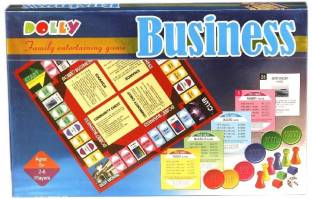International Business Board Game

Deirdre Mendez is trying to. The program has brought students from top international business schools. And two formal presentations to the board. Amazon.in: Buy Ekta International Business Board Game Family Game online at low price in India on Amazon.in. Check out Ekta International Business Board Game Family.
Is trying to explain American cultural nuances to 47 students from nine different countries when a student from Austria pipes up and says that Americans seem disingenuous to strangers. To that, the entire room explodes in agreement. “Let me clear the confusion,” Mendez responds. “Americans are pretty friendly. We ask acquaintances and strangers alike how they’re doing when we see them. And the answer is always, ‘Great, how are you?’ And that’s the end of it. We’re all great.
It would be strange to say anything other than that. It’s not that we don’t care to have a conversation with you. It’s just that for us, friendly inquiry isn't reserved exclusively for deep relationships. Car Rental System Java Program. ” It’s just one of the small but illuminating lessons Mendez shares in her Studies in Intercultural Management course, which is part of the, a global adaptability initiative hosted by the. For more than 10 summers, the program has brought students from top international business schools together with McCombs undergraduates for a six-credit international business boot camp that teaches how to solve problems, manage intercultural conflict and operate in a global marketplace. Mendez, assistant director of CIBER, leads the program with senior finance lecturer. Vitor Sanchez, an undergraduate from Brazil’s Fundacao Getulio Vargas participating in BBA Global this summer, says the program has given him the analytical tools needed to effectively work in a global market with diverse cultures. Mendez’ course prepares the students for the teamwork required to successfully complete Duvic’s highly intensive international corporate management course and simulation.
Duvic says the courses “merge traditional teaching methods with non-traditional technology.” In Duvic’s class, students split into nine teams and compete against each other in a virtual international microcomputer market through Marketplace Live, an online simulation. The teams consist of students with diverse backgrounds and personalities, which gives them a realistic look into international business. Each team first assigns individual roles, develops a company brand, and decides which market segments to target. Then, the games begin.
“The students get very emotionally involved,” Duvic says. “They get a chance to see how decisions unfold in a real-world situation. It exposes things in them that they may not have realized were there before the game.” Every other day the teams are led through increasingly intense phases of the game. The simulation then measures the team’s profits, market effectiveness, human resource and asset management and manufacturing productivity, among every other aspect of running a global business. It truly is a juggling act. Every seemingly tiny decision impacts every other aspect of the virtual firm. Not to mention the fact that they’re being watched—by the other teams.
At one point in the simulation, the sassy female robotic voice who narrates the game shows the team where their firm is located in the virtual skyscraper. The more successful teams are closer to the top floor and enjoy the tennis court and Jacuzzi. The narrator turns her attention to the team and condescendingly asks, “Are you at the top?” And just like in the real world, devious actions have consequences. “Three or four years ago, two teams made a deal of some sort, and one team didn’t do what they had agreed to do,” Duvic says. Tempers flared, and the simulation has since been modified to give formal penalties for such behavior. “It kills them,” Mendez says. “The simulation develops a state of intensity that causes them to engage.
If someone doesn’t engage, it falls apart.” The teams receive feedback on their teamwork and decisions through quantitative evaluations by the simulation, peer evaluations by team members, and two formal presentations to the board of directors, populated by Duvic, Mendez and a handful of other McCombs faculty members. Similar to the simulation, the intercultural coursework creates a “learning by doing” environment, Mendez says. The students are given a “cultural analysis toolkit” with which they profile and analyze themselves and each other. In a final project, they must present a report of American culture based on observation, interviews, and research conducted in Austin.
“It makes them think about how to change their behavior in order to effectively work with others,” Mendez says. “One team in particular that is doing well has a lot of big talkers. There is a shy, but brilliant girl on the team who wasn’t able to get a word in during their meetings. They decided to manage the problem in a structural way. They have ‘Karolina time’ where the team stops and she says what she’s thinking.” Duvic believes the “learning by doing” teaching method utilized through the simulation and real-world scenarios will “replace textbooks” in the near future. And for this group of students, for four weeks in Austin, it already has.